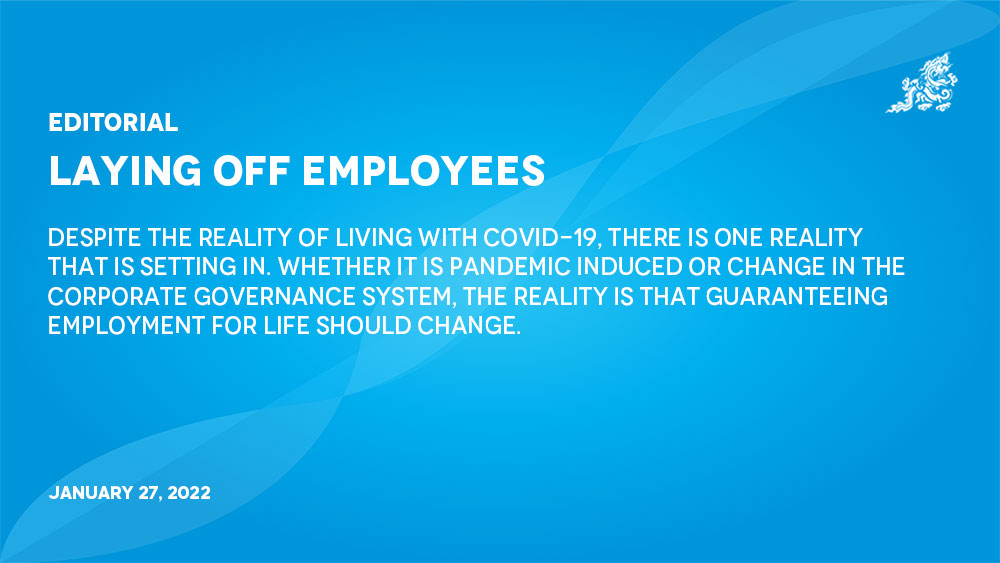Despite the reality of living with Covid-19, there is one reality that is setting in. Whether it is pandemic induced or change in the corporate governance system, the reality is that guaranteeing employment for life should change.
The Mountain Hazelnut laid off some employees. Employees were not happy because they were not ready to face the reality. The company is not doing well in terms of funding and production. Retrenching employees to save overhead costs is nothing new to companies, private or public. It may have come as a surprise for the employees and for many Bhutanese who are guaranteed employment until superannuation. The private sector employees would find nothing new or surprising in the company’s decision.
There is a renewed emphasis on the so-called commercial organisations that are expected to adopt a corporate culture, profitability being the main motive. Job security depends on performance both for employees and the organisation. Gone are the days when an employee could take his job for granted.
Mountain Hazelnut is a foreign direct investment company. Although it has a vision to help vulnerable rural communities through its project, profit – for farmers and the company – is their motive. If it is profitable, it will create more jobs. If it is not, retrenchment will be an option. Many cannot come to terms when 153 people were laid off. This is because it is rare that staff retrenchments take place in many of our organisations.
This has become a problem both in the civil service and the public corporations. It is difficult to retrench staff for many reasons. Our misplaced compassion is affecting the growth of organisations or service delivery. Private companies retrench people depending on profitability. We saw that happen in the service sector when the pandemic affected the service sector. Many are living off the Royal Kidu.
In the civil service and public corporations including the state owned enterprises, we often overlook the brutal fact that some of us are benefiting more from the company or organization than contributing to it. It is difficult to conceive that our organisations may be better off without many of them. It is more difficult with the pandemic becoming a good excuse. Any suggestion to lay off or retrench could be bluntly met with the concern of not burdening the government coffer or adding to the Kidu recipient list.
This culture should change. With emphasis on corporate culture and the need to increase revenue for the government for some and sustainability for others, the pressure is growing. There are expectations, even frustrations among young professionals whose upward movement is blocked or a growing population of jobseekers, some equipped with relevant skills and knowledge. There is also the group of people who are by virtue of being “seniors” (number of years, not experience or skills) unwilling to move on not realizing that they are becoming an excess baggage and discouraging those who are productive.
In the monk body, in the old days, young monks would ask senior monks to move up when they were lined up for prayer sessions based on seniority. Without space to move, senior monks vent their frustration only to hear young monks asking them to move to Phajoding or Dodena, hinting at a retired life at the retreat centres.
Downsizing, retrenchment, golden handshake and early retirement offers are nothing new. Organisations around the world do that quite often for many reasons. It is inevitable, except perhaps in Bhutan.


